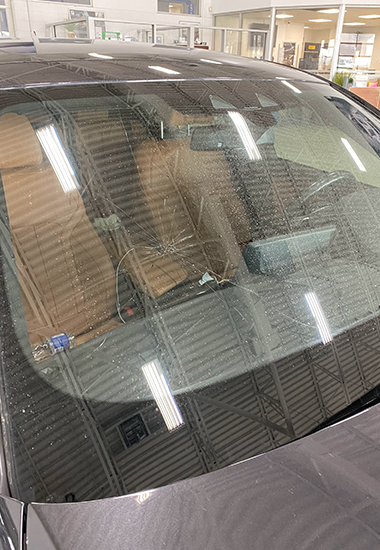
When replacing a damaged windshield, many drivers often wonder whether all replacement windshields are created equal in quality. After all, a windshield is a crucial safety component of any vehicle, providing structural support and protecting occupants from the elements. In this blog post, we’ll delve into the factors determining the quality of replacement windshields and whether you can trust any windshield replacement to deliver the same level of safety and durability as the original.
Material
One of the key factors influencing the quality of a replacement windshield is the material used. Original Equipment Manufacturer (OEM) windshields are crafted by the same manufacturer that initially produced the windshield for the vehicle. These windshields are made to the exact specifications and standards the car manufacturer sets, ensuring a precise fit and quality materials.
On the other hand, there are aftermarket windshields that third-party manufacturers produce. While some aftermarket windshields can be high quality, others may cut corners on materials to reduce costs. Conduct thorough research or consult with your auto technician to ensure the aftermarket windshield you choose meets safety standards.
Safety Standards and Certifications
The quality of a replacement windshield is often determined by whether it meets industry safety standards and certifications. Reputable manufacturers adhere to safety standards set by different organizations. Look for certified windshields, ensuring they meet or exceed these safety standards. This ensures that the replacement windshield is designed to provide the same level of protection as the original.
Searching for windshield replacement near me? Call us at (647) 892-4819 for a Free Quote today!
Installation Quality
The quality of the installation process also plays a crucial role in the overall effectiveness of a replacement windshield. Even the highest-quality windshield can only perform adequately if installed correctly. Professional installation by trained technicians is essential to ensure the windscreen is securely bonded to the vehicle’s frame, preventing leaks and maintaining structural integrity.
Sealant and Adhesive
The type and quality of sealant and adhesive used during the windshield replacement process significantly impact its performance. High-quality adhesives ensure a strong bond between the windshield and the vehicle’s frame, contributing to overall safety. Cheaper or subpar adhesives may compromise the windshield’s stability, making it more susceptible to leaks, wind noise, and even detachment in extreme circumstances.
Optical Clarity and Distortion
Another factor to consider is the optical quality of the replacement windshield. Original windshields are manufactured with precision to minimize distortion and ensure clear visibility. Some aftermarket windshields may exhibit variations in optical clarity, leading to visual distortions that can be distracting and potentially unsafe for the driver.
Cost vs. Quality
While it may be tempting to opt for the cheapest windshield replacement option available, weighing the cost against the quality is crucial. Investing in a high-quality replacement windshield may initially seem more expensive, but it pays off in terms of safety, durability, and long-term performance. Remember, a compromised windshield can jeopardize your safety and your passengers.
In conclusion, not all replacement windshields are created equal in quality. The key factors include the material used, adherence to safety standards, installation quality, sealant and adhesive, and optical clarity. While aftermarket options can be suitable, it’s essential to research and choose a reputable manufacturer that prioritizes safety and quality. Investing in a high-quality replacement windshield is an investment in your safety and the longevity of your vehicle.




















